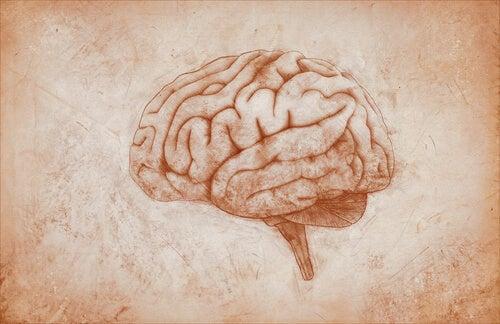In order to reach accurate and safe conclusions, researchers often employ different scientific methods. This is the main area of focus for experimental psychology. This branch of psychology explores basic concepts such as memory and motivation, in areas like child, social, and educational psychology.
Almost all experimental psychology work takes place in controlled settings, such as research laboratories. Experimental psychologists manipulate research variables in order to discover relationships between cognition and behavior.
Every branch of psychology strives to understand human thinking and behavior. However, experimental psychology focuses on conducting controlled experiments with designated variables, test subjects, and statistical results.
The origins of experimental psychology
For some, it was Charles Darwin with his book, The Origin of Species who originated the field of experimental psychology. Indeed, there can be little doubt that Darwin’s evolutionary theory sparked interest in the relationship between biology and psychology. In fact, it was in the early 1900s that psychologists began using the natural sciences to analyze and explain the human mind.
However, this inaccurate understanding of the human mind as a machine was replaced by functionalist theories. For example, William James, considered to be the father of American psychology, was heavily influenced by evolutionary biology. He promoted the idea that the mind is naturally adaptive, sensitive, and intelligent.
In the end, it was behaviorism and other branches of modern psychology that contributed to the formation of what we know today as experimental psychology.
What do experimental psychologists do?
Experimental psychologists want to study behaviors, as well as the different processes and functions that support them. To do this, they use the experimental method. It involves the observation, manipulation, and recording of certain variables that affect an object of study.
Researchers also use measuring instruments that require a high degree of control and precision. The experiments are conducted with humans, but, more commonly, with animals. The use of animals is more frequent as it makes it possible to explain the behavior and psychic processes of man by means of inference. Furthermore, it allows the researcher to have them available at any time and under any circumstance.
In addition, there are certain experiments that can’t be conducted with humans for ethical reasons and that are prohibited. However, we should emphasize that research with animals has diminished in recent years. That’s largely due to the demands of ecologists and animal activist groups.
Principles of experimental psychology
There are four fundamental principles that researchers generally agree on for psychological studies to be considered reliable. These principles are:
- Determinism. Experimental psychologists, like most scientists, accept the notion of determinism. This is the assumption that any state of an object or event is determined by previous states. In other words, behavioral or mental phenomena are typically expressed in terms of cause and effect. If a phenomenon is sufficiently general and widely confirmed, it may be called a ‘law’. Psychological theories serve to organize and integrate laws.
- Empiricism. Knowledge is only derived mainly from experiences related to the senses. Therefore, only things that are observable can be studied. The notion of empiricism requires that hypotheses and theories be contrasted with observations of the natural world and not with a priori reasoning, intuition, or revelation.
- Parsimony. This is the search for simplicity. According to this principle, investigations must be carried out on the simplest of theories. For example, if a researcher is faced with two different and contrasting theories, they prefer the more parsimonious or basic theory.
- Probability. According to this principle, hypotheses and theories should be testable over time. For instance, if a theory can’t be proven in any conceivable way, then many scientists consider it to be nonsense. In fact, probability implies ‘falsifiability’. This is the idea that some sets of observations could prove the theory wrong.
To these principles can be added that of operational definition or operationism. The operational definition implies that a concept is defined in terms of concrete and observable procedures. Experimental psychologists attempt to define currently unobservable phenomena, such as mental events. They do this by connecting them to observations by chains of reasoning.

Reliability and validity
Reliability measures the consistency, verifiability, or repeatability of a study. For example, if the research can be repeated and still produce the same results (either with a different set of participants or over a different period of time), then it’s considered reliable.
On the other hand, validity measures the relative precision or accuracy of the conclusions drawn from a study. It concerns the relative accuracy and correctness of psychological studies. To determine the validity of a measure quantitatively, it must be compared with a criterion.
Various types of validity have been distinguished. These are as follows:
- Internal validity. The study provides strong evidence of causality between two factors. A study that has a high internal validity concludes that it’s the manipulation of the independent variable that’s responsible for the changes in the dependent variable.
- External validity. The study can be replicated in different populations and still produce the same results.
- Construct validity. The independent and dependent variables are accurate representations of the abstract concepts that are being studied.
- Conceptual validity. The hypothesis being tested supports the broader theory that’s also being studied.
Final comments
Experimental psychology is sometimes considered to be a specific branch of psychology. However, experimental methods are widely used in all areas of psychology.
For example, developmental psychologists use experimental methods to study how people grow during their childhood and throughout their lives
On the other hand, social psychologists use experimental techniques to study how people are influenced by groups. Meanwhile, health psychologists also use experimental methods in order to better understand the factors that contribute to well-being and illness.
]
The post Experimental Psychology appeared first on Exploring your mind.



















Comments